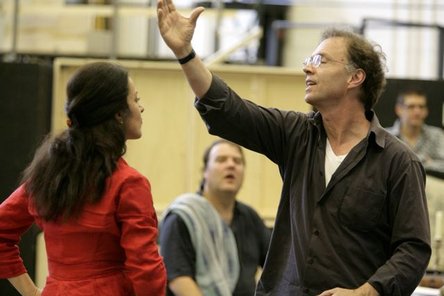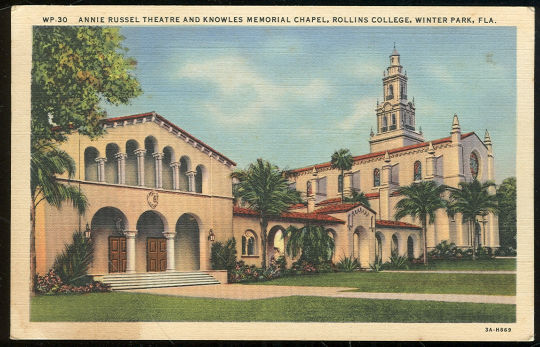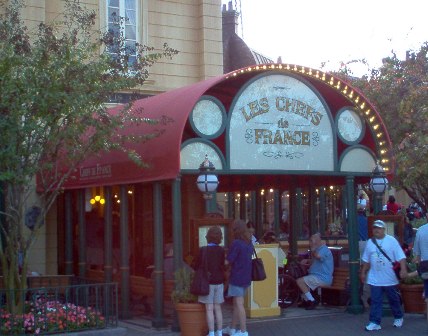“It is comedy which typifies, where it is tragedy which individualizes; where tragedy observes the nice distinctions between man and man, comedy stresses those broad resemblances which make it difficult to tell people apart.”
Harry Levin, Refractions: Essays in Comparative Literature
Archives for March 2009
CAAF: Describe, depict, illustrate
Last week I got a copy of the Oxford American Writer’s Thesaurus, and I’ve been having an entertaining time leafing through it. The allure of the book, even if you already have a good thesaurus, comes from the contributing notes by David Foster Wallace, Zadie Smith, Bryan Garner, Francine Prose and others.
These “word notes” are scattered throughout the text and marked by the contributors’ initials. They’re a mixed bag; some are useful and interesting, while others seem overly cute or casual, and I wish this latter group had been juried out or made to O.E.D.-up. After a while I found myself gravitating to certain contributors’ initials and skipping others as reliably irritating. (In that way it’s like scanning the table of contents of a new New Yorker to choose which articles you’ll read.)
But there are amusements and entertainments. Here is Michael Dirda’s note on “limn”:
This is the phoniest word in the critic’s vocabulary, aside from luminous to describe a writer’s prose (and usually rather gushy prose at that). People are unsure of limn‘s pronunciation, uncertain of its actual meaning, and generally pretentious when they use it. Most of the time journalists resort to limn because they want something fancier than describe. Yet while describe slips smoothly by without calling much attention to itself, limn jumps off the page to strut about and show off. It’s one of those words that want to be urbane and debonair but are somehow really ugly, pushy, and nouveau riche. But maybe I’m going out on a limb by saying that. So let’s just call limn fundamentally, almost viscerally, rebarbative.
I don’t agree with parts of it — “limn” is a great word for getting at a particular thing that “describe” doesn’t — but it’s always bracing to come across a good rant in one’s reference materials. I hope journalists listen.
RELATED:
For a contrary take on “limn” and a defense of one notable critic’s use of it, see here.
CAAF: I walked in town on silver spurs that jingled to …
The sound quality isn’t the best, but if you’re a fan of Nancy Sinatra and Lee Hazlewood’s version of “Summer Wine,” this clip is pretty wonderful. I’ve watched it about a dozen times over the last month, and I do not grow tired of Hazlewood’s bassetty gaze at the camera nor his delivery of the last line of the first lyric as “whoa-whoa, summer wine.” (On the album Nancy & Lee, this line is more like, “Oh-oh-oh, summer wine.” Who knew he was holding back?) Anyway, despite the title, a good (and cautionary!) song for that hectic yet languorous spring feeling.
TT: Step away from the car, sir
Over every operatic collaboration an occasional hush must fall. Work is proceeding apace on The Letter, but Paul Moravec and I don’t have anything to do with it. The Santa Fe Opera is busily planning the July 25 premiere of The Letter, which goes into rehearsal on June 29. Meanwhile, Paul and I are working on various publicity-related activities that will take place between now and then. I’ll be flying to Santa Fe on July 13 to attend the last two weeks of rehearsals and make any last-minute changes that might prove necessary. For all intents and purposes, though, my work is done. From here on out, the responsibility for getting The Letter on stage belongs to the cast and the production team, not the librettist or composer. It’s up to Jonathan Kent, the director of The Letter, to figure out how best to bring my words to life, in the same way that it was up to Hildegard Bechtler, the designer, to create a suitable setting for them.
Even if I were in a position to stick my nose into Jonathan’s business, I wouldn’t do so. I’m a writer, not a director, and it’s his task, not mine, to move The Letter from the page to the stage. Of course I have strong opinions about how The Letter ought to be staged, but they’re fully embodied in my libretto, which Jonathan shows every sign of taking seriously. He discussed the opera with Paul and me last November, and we soon discovered that the three of us were all on the same page: The Letter is a melodrama, and that’s how it ought to be played.
 When Jonathan directed Angela Gheorghiu in Tosca at London’s Royal Opera House in 1996, he gave an interview to the BBC in which he talked about the opera’s dramaturgy:
When Jonathan directed Angela Gheorghiu in Tosca at London’s Royal Opera House in 1996, he gave an interview to the BBC in which he talked about the opera’s dramaturgy:
What I admire about it, quite apart from the thrilling music, is its theatre craft. It’s a taut, sinewy melodrama, exquisitely put together. There isn’t an ounce of flesh on it. Puccini stripped the play down until it was an unstoppable arrow. That’s what interested me: to find a way within that hurtling narrative to examine the relationships and its themes of sex, power and death.
Those words were music to my ears.
The only suggestion that I offered to Jonathan was that I thought the first production of The Letter ought to be played relatively straight. “I don’t think it makes a lot of sense to superimpose any kind of high directorial concept on a brand-new opera,” I told him. “It’s not like we’re doing a piece like Carmen that everybody already knows. I imagine the production as being fairly naturalistic–but in a heightened, poetic way.” He agreed, and that was that.
Do I expect to be surprised by what I’ll see for the first time on July 13? You bet. The whole point of working with a director like Jonathan is to let him surprise you instead of trying to second-guess him at every twist and turn. Just as I couldn’t begin to imagine what Hildegard’s set would look like before I saw the scale model, so am I incapable of envisioning how Jonathan will set the cast of The Letter in motion and help them develop their characterizations. That’s his job. Of course I’ll put in my two cents’ worth if invited to do so, but I wouldn’t dream of meddling, any more than I’d give unsolicited interpretative advice to Patricia Racette, the star of The Letter. To be sure, Pat has questioned me in the closest possible detail about the role of Leslie Crosbie, and I’ve told her what I think about why Leslie does what she does. In the end, though, it’s her job, not mine, to turn Leslie into a living, breathing creature whose onstage behavior makes dramatic sense, and I haven’t the slightest doubt of her ability to do so.
All of which means that after two years of intense and unremitting creative activity, I’ve dropped the reins and stepped back from The Letter. Now I’m simply going to let it happen–and I can’t wait to see what it becomes.
TT: Step by step
I spent Monday night going over the typographical design of Pops: A Life of Louis Armstrong with the finest of fine-tooth combs. Unlike most authors, I take a passionate interest in the interior design of my books. I believe that the typeface in which a book is set is the accent in which a writer speaks to his readers, and I want every page of Pops to be both easy to read and unobtrusively pleasing to the eye. I’ll show you the fruits of my labors as soon as we’ve locked in the final design, but I can already promise you that Pops is going to be an exceedingly good-looking book.
TT: Almanac
“For Beethoven, as for the greatest literary artists, above all his beloved Shakespeare, comedy is not a lesser form than tragedy but is its true counterpart, the celebration of the human in all things.”
Lewis Lockwood, Beethoven: The Music and the Life
TT: Their towns
I recently flew down to Raleigh, North Carolina, to see Carolina Ballet perform Tempest Fantasy and The Kreutzer Sonata, a beautiful pair of ballets choreographed by Robert Weiss, the company’s artistic director. The first, a one-act dance version of Shakespeare’s play, is set to the Pulitzer-winning Tempest Fantasy of Paul Moravec, my friend and operatic collaborator. The second, a stage version of Tolstoy’s novella in which dancing is tightly integrated with the spoken word, is set to a score sculpted by J. Mark Scearce out of Beethoven’s “Kreutzer” Sonata, the work that inspired Tolstoy, and Janacek’s First String Quartet, which was inspired by Tolstoy.
Paul and Mark were on hand for the opening-night performance, to which I also invited Zephyr Teachout, who teaches law at Duke University and to whom I am undoubtedly (if obscurely) related. Zephyr had never before seen any classical ballet, and Tempest Fantasy and The Kreutzer Sonata knocked her for a loop.
 I would gladly have tarried in Raleigh, but I had to fly to Orlando, Florida, where I gave two speeches that weekend. Actually, it wasn’t there that I did my star turns: I spoke in Winter Park, a smallish community (pop. 24,090) on the outskirts of Orlando that is part college town and part old-fashioned resort town. My destination was Rollins College, a liberal-arts school that is home to the Winter Park Bach Festival and the Winter Park Institute. The Bach Festival, which has been in business since 1935, puts on polished performances of large-scale choral and symphonic works in the college’s Knowles Memorial Chapel, a gorgeous little Spanish Gothic edifice designed in 1931 by none other than Ralph Adams Cram. The Winter Park Institute, by contrast, is a brand-new enterprise that brings artists, scholars, and general-purpose eggheads (guess who?) to the campus to speak, perform, write, and hang out.
I would gladly have tarried in Raleigh, but I had to fly to Orlando, Florida, where I gave two speeches that weekend. Actually, it wasn’t there that I did my star turns: I spoke in Winter Park, a smallish community (pop. 24,090) on the outskirts of Orlando that is part college town and part old-fashioned resort town. My destination was Rollins College, a liberal-arts school that is home to the Winter Park Bach Festival and the Winter Park Institute. The Bach Festival, which has been in business since 1935, puts on polished performances of large-scale choral and symphonic works in the college’s Knowles Memorial Chapel, a gorgeous little Spanish Gothic edifice designed in 1931 by none other than Ralph Adams Cram. The Winter Park Institute, by contrast, is a brand-new enterprise that brings artists, scholars, and general-purpose eggheads (guess who?) to the campus to speak, perform, write, and hang out.
I came to Winter Park at the invitation of John and Gail Sinclair, two fellow Missourians who, like me, have ended up far from home. John is the chairman of Rollins’ music department and the music director of the Bach Institute. Gail is the executive director of the Winter Park Institute and a literary scholar with a double-barreled field of fire: she writes about F. Scott Fitzgerald and Ernest Hemingway, which is sort of like simultaneously specializing in Stravinsky and Schoenberg. They’ve been married for half their lives, have two near-grown children, and show every sign of being entirely happy. I can see why.
John and I went to college together, but we’d been out of touch for three decades, and I was amazed to discover that he’d turned himself into an accomplished conductor who led the Bach Festival Chorus and Orchestra in brisk-tempoed, impressively direct performances of Brahms’ German Requiem and Dvorak’s “New World” Symphony. In between concerts and speeches, he and Gail showed me around the campus and the town that surrounds it, a handsome place whose Spanish-style architecture is quintessentially Floridian. The faculty members and townspeople whom I met were smart and friendly, the weather warm and inviting, the restaurants varied and excellent.
Visiting Winter Park and Raleigh reminded me of what I gave up by moving to Manhattan a quarter-century ago. It goes without saying that the cultural offerings in such places are less numerous than those of my adopted home town, but the residents treasure what’s there precisely for that reason, and become vested in it to a degree that New Yorkers, with their what-have-you-done-for-me-lately mentality, can’t easily imagine. In any case there are additional compensating virtues, many of them not unlike the ones that led my brother to settle down in Smalltown, U.S.A., instead of doing as I did and seeking his fortune elsewhere. I’ve never doubted that the life I chose was the one I needed at the time, but whenever I visit a place like Winter Park, I find myself wondering whether I’ll always feel the same urgent need for the ever-shifting crosscurrents of big-city life.
The weather in central Florida started out balmy and ended up crisp, at least by southern standards (I think it got all the way down to sixty degrees by the time I left). In the meantime a blizzard had blown into the New York area, and by the time I arrived at the Orlando airport on Monday morning, I was starting to doubt the wisdom of flying to LaGuardia. I called Mrs. T, who told me to be sensible and wait a day before coming home, so that’s what I did: I rebooked my return flight, checked into Orlando International Airport’s in-terminal hotel, invited myself to dinner with the Sinclairs, and spent the rest of the morning strolling around the mall-sized shopping area of the best-run, best-designed airport I’ve ever seen. Unaccustomed to finding myself in a strange place with no shows to see or deadlines to hit, I wallowed in the unfamiliar sensation of having nothing to do, and decided that there was much to be said for it.
 Orlando is, of course, the home of Disney World, a place I’d never been. John conducts there as well as at Rollins College, so he and Chuck Archard, a top-notch jazz bassist who also teaches at Rollins, picked me up at five-thirty and drove me to Epcot Center, where we dined at a first-class French restaurant and marveled at the absence of small children. I could easily have spent another hour wandering up and down Epcot’s spacious, orderly boulevards, but I’d booked an early flight on Tuesday, so instead I returned to my hotel room, called Mrs. T to let her know that her advice had served me well, and got a good night’s sleep.
Orlando is, of course, the home of Disney World, a place I’d never been. John conducts there as well as at Rollins College, so he and Chuck Archard, a top-notch jazz bassist who also teaches at Rollins, picked me up at five-thirty and drove me to Epcot Center, where we dined at a first-class French restaurant and marveled at the absence of small children. I could easily have spent another hour wandering up and down Epcot’s spacious, orderly boulevards, but I’d booked an early flight on Tuesday, so instead I returned to my hotel room, called Mrs. T to let her know that her advice had served me well, and got a good night’s sleep.
Twelve hours later I was on the Upper West Side of Manhattan, where the temperature was fifty degrees colder, the sidewalks were covered with sooty snow, and a bagful of mail awaited me. I’d throttled back up to my usual urban ground speed by the time I caught a cab to Broadway that night to see Guys and Dolls, but I couldn’t shake the feeling that I’d just caught a fleeting glimpse of a parallel universe, one in which I could almost imagine myself at home.
TT: Almanac
“No one forces you to ply the trade you follow. But if you do choose it, then acquit yourself to the best of your ability. And above all, you should not think of writing as a way of earning your living. If you do, your work will smell of your poverty. It will be coloured by your weakness and be as thin as your hunger. There are other trades which you can take up: make boots, not books. Our opinion of you will not be any poorer, and since you will be sparing us acres of boredom, we may even think better of you.”
Marquis de Sade, The Crimes of Love (trans. David Coward)
